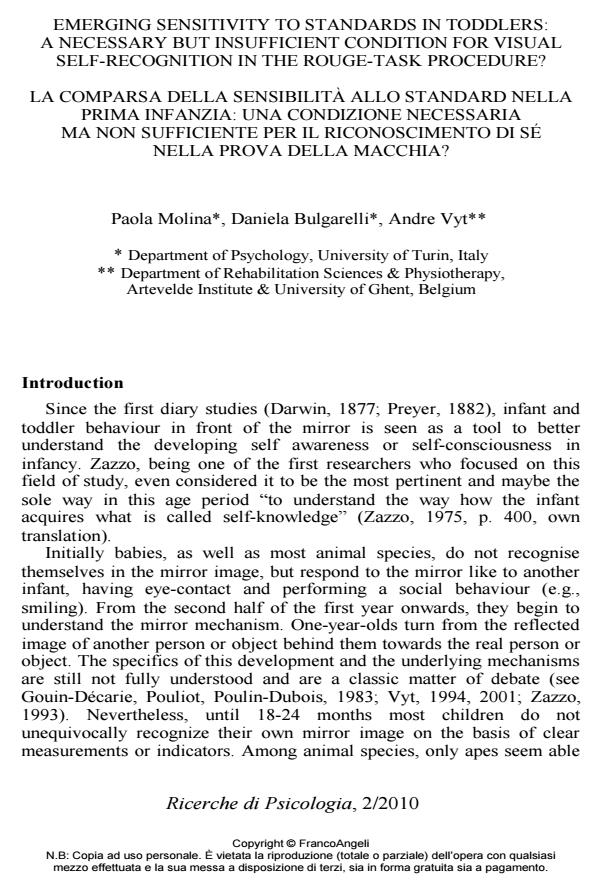Emerging sensitivity to standards in toddlers: a necessary but insufficient condition for visual self-recognition in the rouge-task procedure?
Journal title RICERCHE DI PSICOLOGIA
Author/s Paola Molina, Daniela Bulgarelli, Andre Vyt
Publishing Year 2012 Issue 2010/2
Language English Pages 16 P. File size 235 KB
DOI 10.3280/RIP2010-002001
DOI is like a bar code for intellectual property: to have more infomation
click here
Below, you can see the article first page
If you want to buy this article in PDF format, you can do it, following the instructions to buy download credits

FrancoAngeli is member of Publishers International Linking Association, Inc (PILA), a not-for-profit association which run the CrossRef service enabling links to and from online scholarly content.
Different explanations are put forward for the late acquisition of the <i>mirror self-recognition (MSR) task</i> (or rouge task) in comparison to other mirror tasks. A particularly interesting hypothesis about factors that mask success in MSR task concerns the growth of the appreciation of standards of proper behaviour, noticing deviations from normality in objects and in their own action (Mitchell, 1993, 1994). Standard sensitivity is proposed as a core factor in determining the self recognition capability. To test this hypothesis, we observed 40 infants, aged between 15 and 24 months, confronted with a spot on a doll’s face, on the infant’s hand, on the observer’s face, and on the infant’s face. Our data suggest that sensitivity to standards can be seen as a necessary but not sufficient requirement for success in the <i>MSR</i> task: other capacities, namely the development of representation, may play a decisive role in the successful performance on the <i>MSR</i> task.
- Développement et variabilités Paola Molina, Monica Marotta, pp.67 (ISBN:9782753527638)
Paola Molina, Daniela Bulgarelli, Andre Vyt, Emerging sensitivity to standards in toddlers: a necessary but insufficient condition for visual self-recognition in the rouge-task procedure? in "RICERCHE DI PSICOLOGIA " 2/2010, pp , DOI: 10.3280/RIP2010-002001